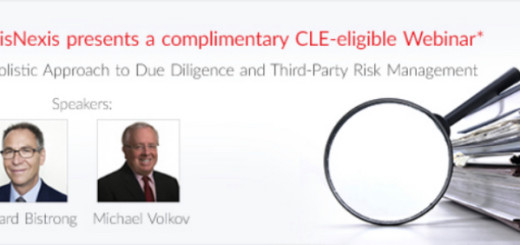Webinar: Managing Private Equity Corruption Risks
Date: Tuesday, August 11, 2015 Time: 12 Noon EST Sign Up Here Justice Department and SEC prosecutors are devoting greater attention to private equity FCPA enforcement. This coincides with increased SEC regulation and examination of the private equity industry. Private equity companies face significant corruption risks in global markets. From sovereign wealth funds to portfolio companies, private equity compliance officers have to design and implement...























